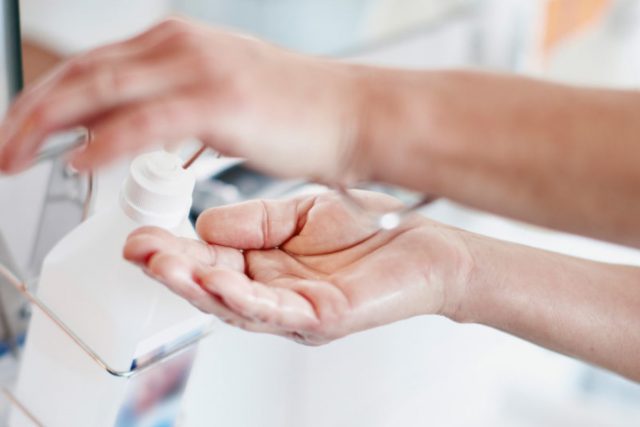
The COVID-19 pandemic has ravaged the world and, while there are reasons to be optimistic about the vaccines, it is still a major health crisis that will have a long-term impact. At the time of writing, there have been around 120 million recorded cases of COVID-19 all over the globe and, unfortunately, over 2.5 million deaths. It is vital that people know how to look after their health during the pandemic, and there are a few tips that will hopefully help you to prevent infection, stay healthy, and also look after your mental health during such a challenging time.

Practice Basic Hygiene
It is something that has constantly been expressed by scientists, health experts, and politicians over the last 12 months, but it remains vital that people practice basic hygiene and do not let their guard slip just because numbers are falling. This remains the best way to prevent infection and can also help to prevent catching other illnesses, so people should always practice basic hygiene, especially when they leave home. This will include:
- Washing hands with soap for 20 seconds
- Avoiding contact with foreign objects
- Wearing a mask
- Social distancing
Stay At Home
The other messaging that has been constant but incredibly important is to stay home as much as you can. You should only be leaving the house for essential reasons, which can include food shopping, going to the pharmacy, work if you are not able to work from home, and exercise. In terms of socializing, you need to abide by the advice from your government and stay up to date as this often changes.

Take Vitamin D
Studies have shown that 80% of COVID-19 patients that required hospitalization also had a vitamin d deficiency, so it is a good idea to start taking a vitamin d supplement on a daily basis to ensure that you are getting enough (especially since people are spending more time indoors and not getting as much sunlight as they usually would). You can also buy multi vitamins and calcium supplements in pharmacy store, one of them who we know is Mediserv Pharmacy they provide door step delivery – prioritizing your health and well-being.
Lose Weight
There is also a link between obesity and severe COVID-19 cases, so if you are overweight, then now is certainly a good time to lose weight. You can exercise at home with HIIT workouts being good for weight loss, or you could look to run, cycle or walk. You also need to eat a healthy diet in order to lose weight. If you are obese and worried about COVID-19, you could look into a weight loss procedure that could be worthwhile and life-changing.

Strengthen Your Immune System
People should also look to strengthen their immune system, especially those that are old, overweight and/or have a health condition. You can strengthen your immune system through regular exercise, a healthy diet, and getting enough sleep, and there are also various different recipes and supplements that you can try, which should help.
Self Isolate If You Develop Symptoms
If you do develop COVID-19 symptoms, it is vital that you self isolate at home. While most people will have mild symptoms, and it will feel like a bad cold, there are also those that will have much more severe cases that result in hospitalization and death. This means that you have a duty to stay home and protect public health if you develop symptoms and to minimize contact as much as you can.

Buy A Pulse Oximeter
Leading on from this point, while most people will have mild symptoms and be clear after ten days of self-isolation, it is important to know the signs to look out for that you might require medical care. A pulse oximeter is a small device that simply clips onto your finger and monitors oxygen levels in the blood – one of the most serious issues with COVID-19 is people’s oxygen levels dropping to dangerous lows without them realizing, so these devices allow you to detect if your levels fall below the dangerous level (95%) and allow you to take action. Doctors are recommending that people use these devices, and they could even save your life.
Be Wary Of Long COVID
Another area of concern is those that are experiencing symptoms long after recovering and no longer shedding the virus, which is known as long COVID. So, what are the most common signs and symptoms that linger over time after an COVID-19 infection? Brain fog, fatigue, heart palpitations, and shortness of breath are a few of the more common symptoms. Researchers are not entirely sure why some patients continue to experience symptoms in the long-term, but there is some promising research that suggests that stem cells could be effective at treating those with long COVID, and you can read more here.

Look After Your Mental Health
As mentioned in the intro, mental health is also a major problem as a result of the pandemic. People might be worried about their health, the health of loved ones, their job security, financial situation, and just the overall situation that has now gone on for over a year. People are experiencing stress, anxiety, depression, insomnia, and many other mental health issues, so you need to be able to recognize the signs, find ways to look after yourself, and reach out for professional support if you feel that it is needed. You should also check-in with loved ones often to see how they are doing, especially those that live alone and/or have suffered a loss during the pandemic. A few ways to look after your mental health during this time include:
- Limiting the amount of news and social media that you consume
- Regular exercise
- Hobbies
- Speaking with loved ones (while abiding by guidelines)
- Treating yourself
- Making plans for post-pandemic
Hopefully, these health tips will come in useful and help you to stay healthy, active, and positive during these challenging times. There is light at the end of the tunnel, but it is vital that people do not let their guard slip now, and it is essential that people are making their health and wellbeing a priority.














